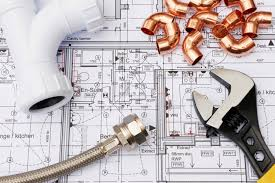Real estate agents and home builders often have an adversarial relationship. It is usually due to misunderstandings and myths that buyers and builders hold. Buyer’s agents should be aware of these misconceptions and how to counter them. Building partnerships with new home builders is a great way to increase sales in your real estate business.
Builder’s Agent
If you’re a real estate agent specializing in new construction, forming partnerships with builders can give you a steady list of listings. Many top agents find that building relationships with home builders is one of the best ways to grow their business. However, you can only jump into it after getting your real estate license. Builders want to engage with professionals with a track record of achievement in their local market. They may hire an in-house, on-site sales agent to help with selling. This person will have a fiduciary responsibility to the builder, and they will be working to maximize the builder’s profits. By negotiating pricing, terms, and conditions with the builder, a new home sales broker may assist you in selling a newly constructed house. They can also guide you through the challenging paperwork of new construction.
Buyer’s Agent
A buyer’s agent represents the home buyer in a real estate transaction. They listen to the client to determine their must-haves and preferences, research the market to find properties for sale that meet those requirements and help them understand how much they can afford to pay for a home. They can advise clients on financing options and prepare loan documents as needed. They may also point them toward contractors and other professionals they need to complete the purchase. In many cases, the buyer’s agent will accompany clients to showings and open houses. They will ask questions to understand the property better and offer their thoughts and opinions. They can also help negotiate the sales price and other contract terms.
Buyer’s Contract
A buyer’s contract is a written agreement establishing a working relationship between a homebuyer and their agent. It can be exclusive or non-exclusive and specifies the broker’s scope of duty, buyer obligations, and responsibilities. Typically, buyers’ agents work for real estate brokerages, which pay them commissions on selling homes they represent. The seller pays the broker at closing, and the broker then splits the commission with their buyers’ agent. Generally, once the buyer’s agent finds a property that meets their client’s needs, they submit an offer to the seller’s agent for consideration. The seller can accept, reject, or counter-offer the offer within a day or two, and then a purchase and sale agreement is drafted. Ideally, the buyer’s agent will alert the buyer to potential conflicts of interest and ensure that all parties are protected. This way, the agent can negotiate the best deal for their client.
Seller’s Contract
When you buy a house, you enter into a purchase contract (or real estate sales agreement). This document stipulates the terms of sale and transfers ownership of a property. It usually lists the full names of both parties, describes the property (including its address and legal description), identifies the sales price and outlines closing dates. It also outlines any contingencies that must be met before the sale is binding. For example, most contracts will have a contingency allowing buyers to void an offer if they cannot secure financing before a certain date. It will enable the seller to continue searching for another buyer without returning any earnest money the buyer has given them. The contract may also stipulate several other details, including which fixtures will remain and the responsibilities of each party if one party breaches the contract. For instance, the contract may specify that if the buyer breaches the contract by refusing to close for an unsatisfactory reason, they must pay liquidated damages to the seller in the amount of the earnest money deposit.



